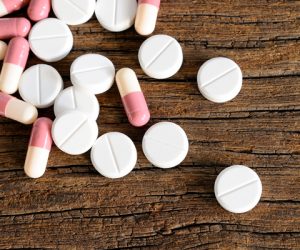One of the things that patients fear most is the side effects of medication. Moreover, we know that any drug agent along with its therapeutic potential also poses some risk. What is less known is that often side effects can be minimized by the use of some dietary supplements.
Sometimes the side effects of such drugs in common use are, in fact, related to their ability to reduce the bio-availability of important nutrients thereby exposing the patient to a risk of deficiencies specifications.

In these cases bind to the drug a dietary supplement can solve the problem and allow to obtain the desired therapeutic effect in conditions of greater security.
A very common case concerns many people taking statins to keep cholesterol away. Few people know that these drugs block the production of cholesterol, also hinder the formation of coenzyme Q10, an essential co-factor in energy production at the cellular level as well as a powerful antioxidant.
The lack of coenzyme Q10 can lead to tiredness and muscular pain as well as significantly increase the risk of developing oxidative stress and, from there, accelerate aging. Sometimes statins can be replaced with naturally fermented red rice products especially if the intake takes place in parallel with a proper feeding. But, in other cases, this is not possible and long-term pharmacological therapy should be continued. Under these conditions it is essential to associate a coenzyme Q10 supplement possibly in the form of ubichinol at a dosage of 50-100mg per day.
You may also like to read: How to improve metabolism
Another typical case concerns many people who use drugs to keep blood pressure down. Beta-blockers and diuretics may also reduce the availability of coenzyme Q10 and also vitamin B, magnesium, calcium and potassium, causing fatigue and reduced muscle performance. The use of multivitamin is a very useful practice in association with this case also with coenzyme Q10.
Those who use metformin to control glycemia and insulin production should pay attention to the risk of vitamin B12 deficiency and folic acid. In addition to possible anemia, this deficiency can give weakness, pallor, endformion, headache, depression and diarrhea. In these cases an additional intake of 50mcg of vitamin B12 and 400mcg of folic acid may be helpful.
Some drugs used against heartburn and gastritis such as proton pump inhibitors may instead reduce protein absorption by making it necessary to increase the take by feeding or integrating with protein or amino acid preparations to prevent a weakening of the proton pump musculature.
For women taking oral contraceptives it is very important to compensate for the reduced absorption of Group B vitamins and folic acid induced by these drugs that can help produce headaches and mood changes. Even in this case a balanced multivitamin is indicated.
Finally, people who frequently use non-steroidal and cortisone anti-inflammatory drugs that can reduce the availability of numerous micro-nutrients including vitamin C, potassium, folic acid, vitamin B12, iron, calcium, magnesium, zinc and vitamin D. Also in these Cases is useful in combination with a multivitamin / multimineral balance with at least 800 UI of vitamin D.
Given the number of people taking medicines continuously, it is good to ask about any nutritional deficiencies induced by the prescribed therapies and to intervene to avoid them and thus reduce the risk of long-term side effects.




